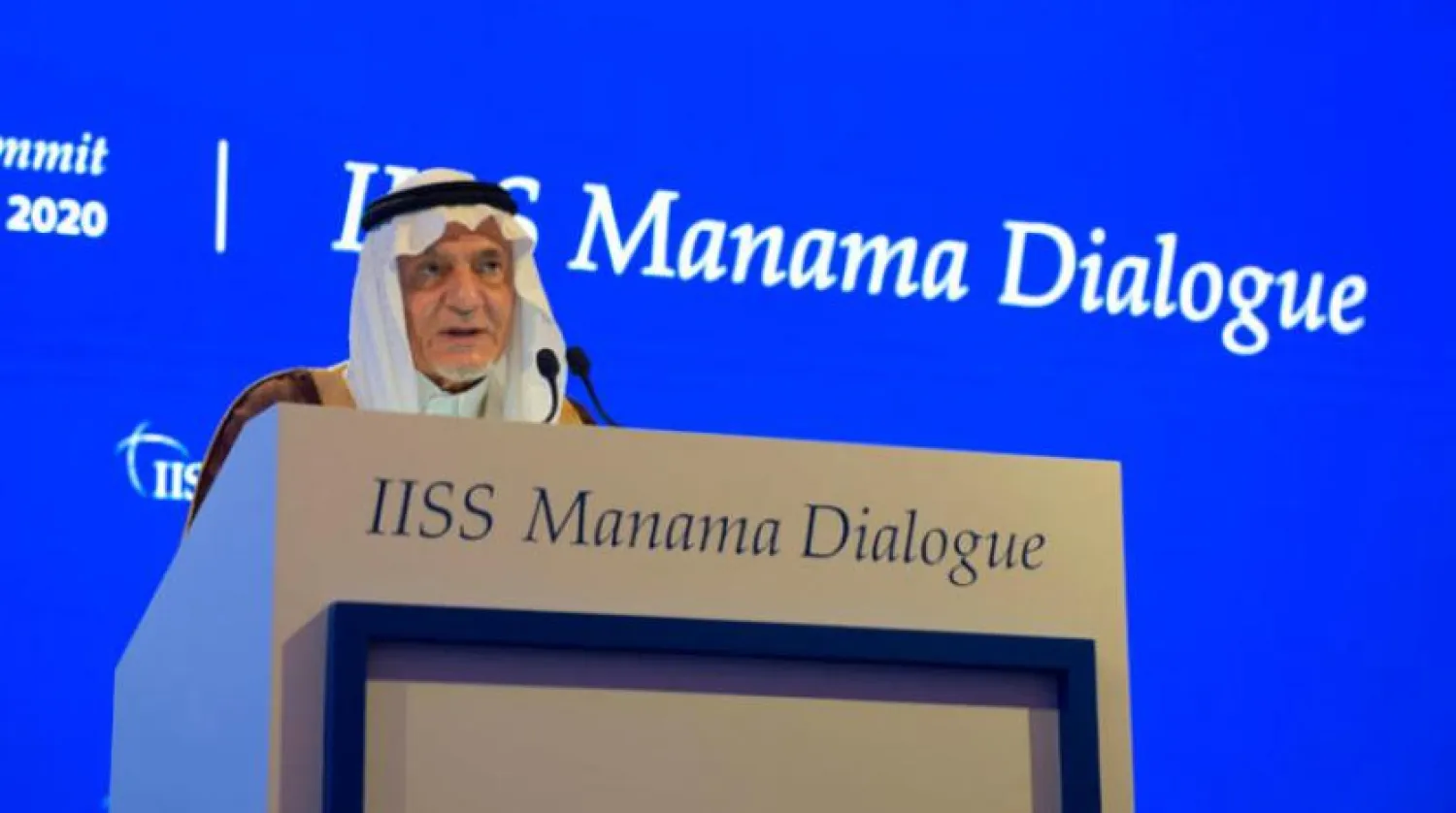A prominent Saudi prince has harshly criticized Israel during a security summit held in Bahrain’s capital.
Prince Turki al-Faisal, Saudi Arabia’s former intelligence chief, accused Israel of being a hypocrite, pointing to its undeclared arsenal of nuclear weapons.
His remarks were made during the International Institute for Strategic Studies (IISS) Manama Dialogue, which was remotely attended by Israel’s Foreign Minister Gabi Ashkenazi.
Prince Turki opened his remarks by contrasting what he described as Israel’s perception of being “peace-loving upholders of high moral principles” versus what he described as a far-darker Palestinian reality of living under a “Western colonizing” power.
Israel has “incarcerated (Palestinians) in concentration camps under the flimsiest of security accusations,” he stressed.
“They are demolishing homes as they wish and they assassinate whomever they want.”
The Kingdom’s former ambassador to the US and UK reiterated his country’s official position that the solution lies in implementing the Arab Peace Initiative, a 2002 Saudi-sponsored deal that offers Israel full ties with all Arab states in return for Palestinian statehood on territory Israel captured in 1967.
Referring to the Abraham Accords — the normalization agreements Israel signed with the United Arab Emirates and Bahrain — the Saudi royal said, “You cannot treat an open wound with palliatives and painkillers.”
He concluded his speech by calling on Israel to “grab the extended hand of peace and end this tragic charade.”
“Only then, we can get together to face the other colonizing power that boasts about its control of four Arab capitals,” in reference to Iran.
Prince Turki noted that his statements represent his personal opinion, casting aspersions on the peace agreements signed by Gulf States with Israel.
Ashkenazi, for his part, expressed regret for the comments of the Saudi representative.
“I don’t believe that they reflect the spirit and the changes taking place in the Middle East,” he said.
“I rejected his remarks and emphasized that the ‘blame game’ era is over. We are at the dawn of a new era. An era of peace,” he later tweeted.
“The Abraham Accords do not come at the expense of the Palestinians - they are an opportunity. I call on them to change their minds and enter direct negotiations with us without preconditions,” the minister added.
Meanwhile, Saudi Foreign Minister Prince Faisal bin Farhan told AFP on Saturday that the kingdom’s position remained resolute.
“We’ve been quite clear that in order for us to proceed with normalization, we will need to see a settlement of the Palestinian dispute and the formation of a viable state of Palestine along the lines envisioned in the 2002 Arab Peace Initiative,” he noted in an interview in Manama.
Asked whether that effectively ruled out the establishment of ties with Israel any time soon, he said he was “optimistic that there is a path towards a resolution between the Palestinians and Israelis”.









